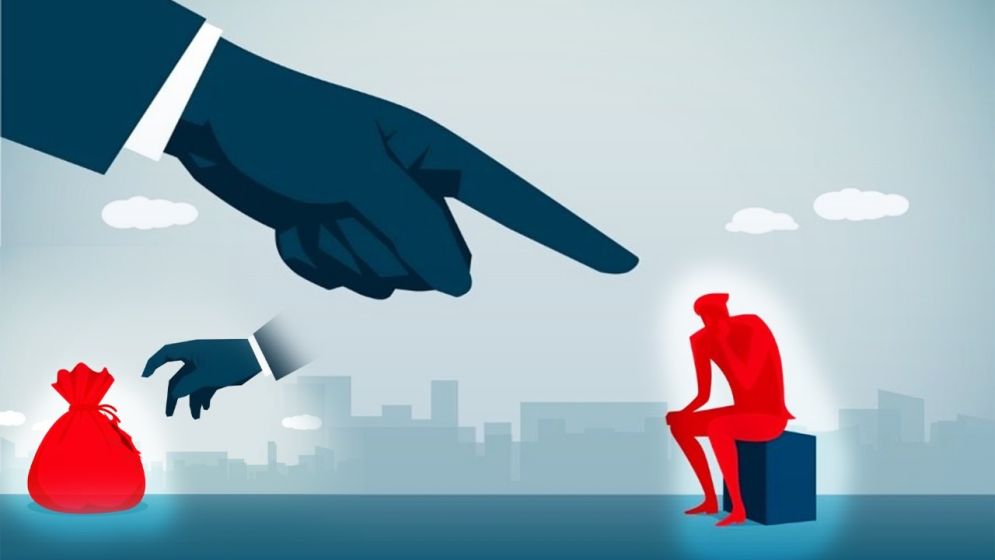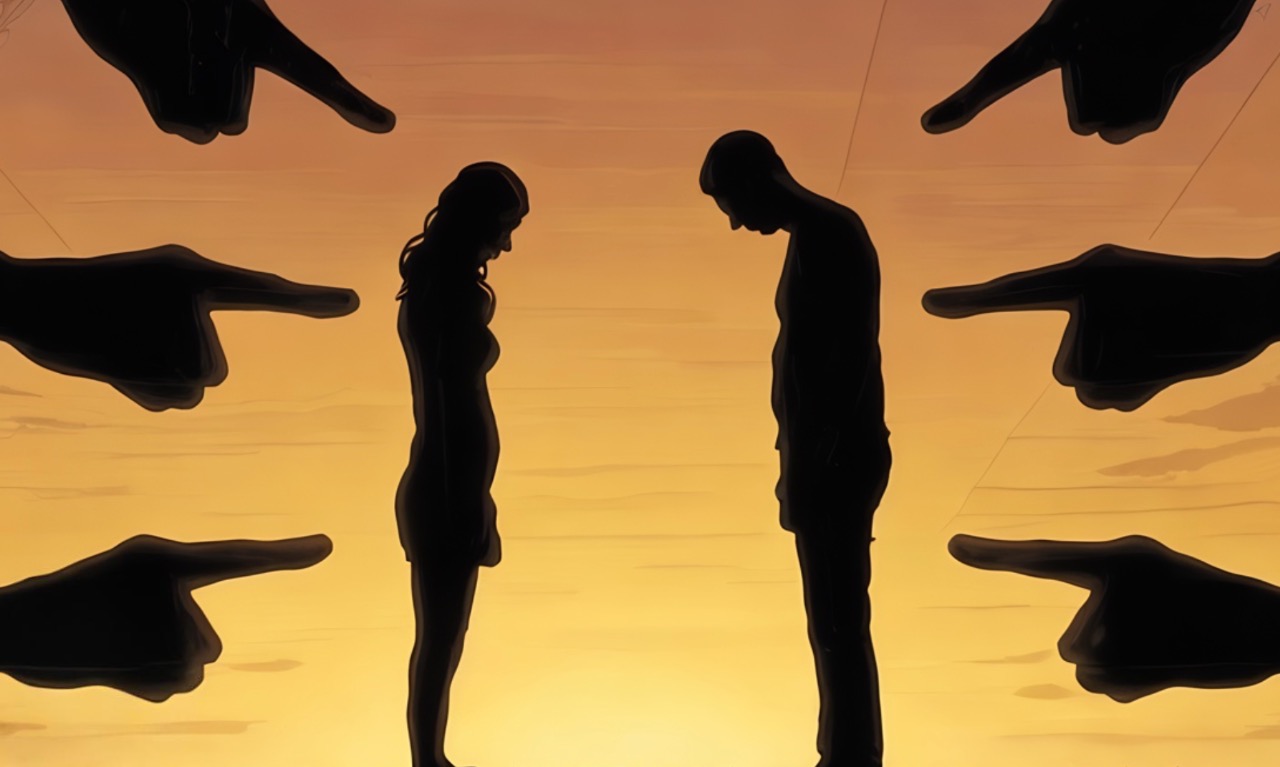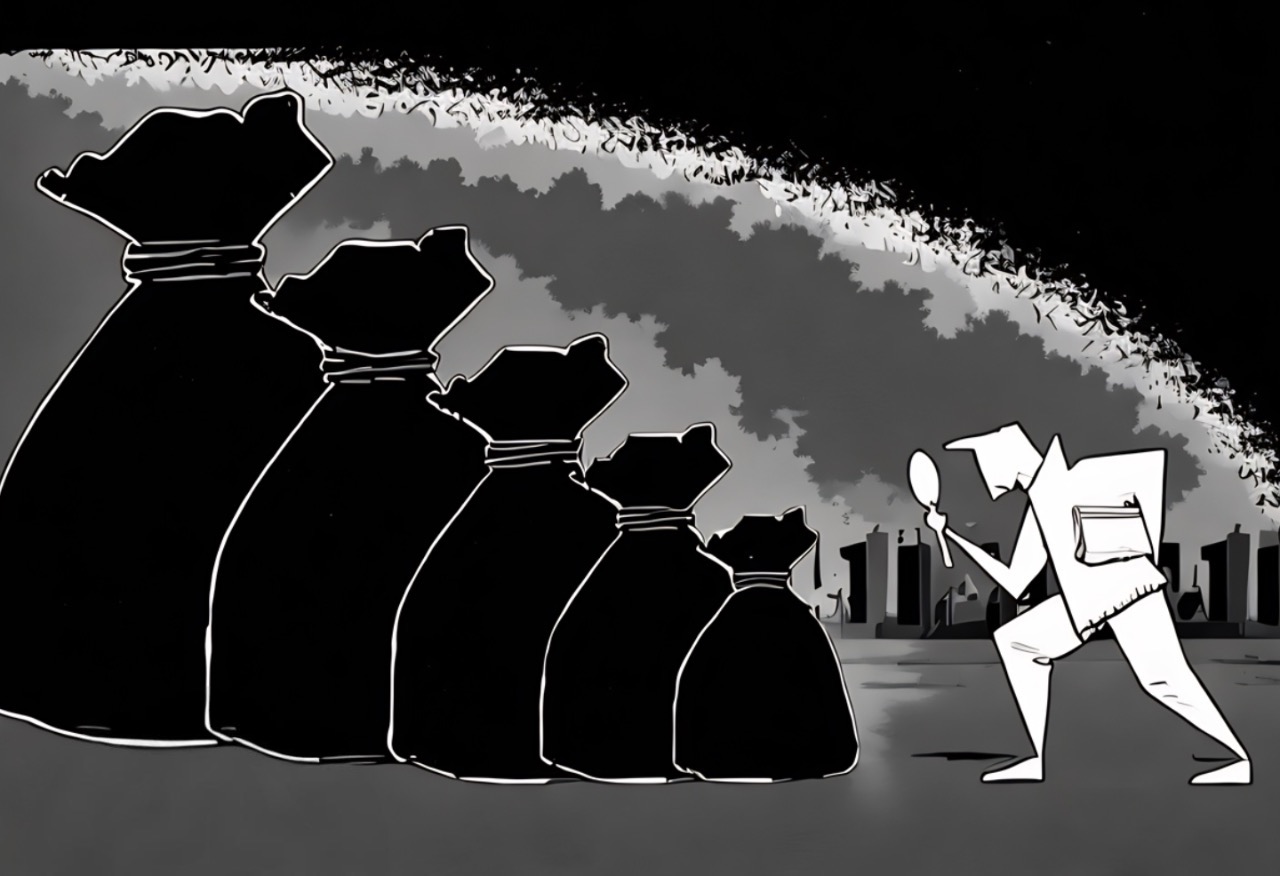The lives of loot-born children after the end of Awami plunder..

For years, we've heard the narrative: Bangladesh's privileged millennials and Gen Z, products of affluence and often Westernized education, are finally "woke."
They're attuned to their emotional well-being, quick to call out injustices, and flocking to therapy in droves. This embrace of emotional literacy is presented as a generational triumph, a sign of a society shedding its old stoicism.
But when the dust settled on last year's July-August uprising, a more cynical truth emerged about Bangladesh's gilded youth.
While the uprising for social justice was undeniably spearheaded by the less privileged–the students from lower and middle-income backgrounds–a curious contingent did materialize: the scions of the upper-middle class, particularly those enrolled in private universities.
They joined the chorus, a smattering of sons and daughters of mid-level businessmen and government service holders. But we must ask, was this participation a genuine ideological stand, or merely a performative flirtation with revolutionary chic?
Was it a deep-seated conviction, or just another trend to be consumed and discarded?
Conspicuously absent, however, were the children of the ultra-rich, the offspring of those who have systematically plundered Bangladesh's coffers with breathtaking impunity.
Insulated by international schooling in Dhaka or abroad, their lives are a gilded cage, untouched by the very realities that ignited the streets. Their silence, their absence, speaks volumes.
Now, as investigations slowly peel back the layers of corruption, a quiet reckoning, perhaps, begins for these children. How do they reconcile the public image of their parents–powerful, respectable–with the increasingly undeniable truth of their ill-gotten wealth?
How do they grapple with the realization that their inherited comfort is built upon the stolen futures of their countrymen? Some, no doubt, will claim they've always known, that they simply don't care as long as their lavish lifestyles remain undisturbed.
This is not a moral crisis for them; it's an inconvenient disclosure.

A generation adrift
What truly sets Bangladesh’s ultra-elite apart, what makes them so profoundly disquieting, is the very culture they inhabit.
In their rarefied circles, grand theft isn't a scandal to be hushed up; it's a badge of honor. The ability to pilfer on an epic scale is openly admired as a mark of cunning and prowess.
Envy, not integrity, governs their interactions. If they don't possess something, they ridicule it. Status is everything; integrity is a forgotten word.
In this morally inverted ecosystem, the children of absconding Awami League elites are now viewed with a double-edged gaze. On one side, there's a perverse awe at the sheer scale of their families’ exposed loot.
On the other, envy curdles into bitter resentment among peers who lament missing out on such "opportunities." And perhaps most chillingly, the children of Bangladesh's rising political forces are not studying these revelations as cautionary tales of moral failure.
No, they are dissecting them as blueprints, preparing not to dismantle this corrupt cycle, but to emulate it, to perfect it, and to continue the plunder. The "woke" generation, it seems, has a long way to go before true awakening.
The spotlight on Bangladesh's affluent youth often shines on their "emotional awakening," their embrace of therapy and self-care.
But as the state's dragnet tightens around their parents–seizing assets, publishing damning reports, and parading disgraced figures through public humiliation–what of the emotional wreckage left in the wake of such a spectacular downfall?
Are the children of these fallen elites silently unraveling in their once-envied world? Are they now whispered about, mocked, and quietly ostracized by the very circles that once courted their families' influence?
Are friends and relatives, who once basked in their reflected power, now strategically distancing themselves?
One wonders if some are now turning to therapy, not for genuine self-discovery, but to numb the gnawing realization that their entire gilded existence was funded by theft.
Behind the designer labels and curated Instagram lives, is there a void–devoid of personal merit, lacking any rooted purpose, burdened only by the crushing weight of inherited disgrace?
Are they, at this very moment, navigating a profound crisis of identity–born into power, yet stripped of dignity before they could even define themselves?
Meanwhile, the architects of their parents’ downfall–the fugitives who fled with stolen wealth–find no true refuge. Their reputations lie in ruin, exposed for what they truly are: thieves, not statesmen.
Any respect they command today is purely transactional, purchased with cash rather than earned with character. And the inherent flaw with paid loyalty is its inherent expiry date.
When the expected favors dry up, flattery quickly sours into fury, and sycophants inevitably transform into saboteurs.

When corrupted empire crumbles
This bitter truth cuts even deeper when it comes to those they once paid to shape public opinion: the journalists, commentators, and social media operators.
These narrative mercenaries were never bound by genuine loyalty, only by cold contracts. As the political tides irrevocably shift, many are now shamelessly flipping sides–exposing what they once ardently defended, and slandering what they once effusively celebrated.
In the volatile post-Hasina landscape, betrayal is not the exception; it is the reigning currency of survival.
Then there are the legal architects of their impunity–not merely defenders, but active collaborators. Lawyers who toiled tirelessly, twisting laws into impenetrable shields, blurring the lines between legitimate defense and outright complicity.
The fees, naturally, were astronomical; the more grotesque the crime, the fatter the brief. But for the most notorious looters, domestic legal protection is rarely enough.
Enter the lobbyists: global image consultants and geopolitical middlemen who expertly launder reputations on international stages, manipulating foreign governments under the thinly veiled guise of diplomacy.
A significant portion of the stolen loot ends up funding this elaborate web–more to sustain the illusion of power for a corrupt few than to serve the people.
When their inevitable day of flight arrives–and it always does–it's a scramble of Caribbean passports, international credit cards, and a few bundles of hard currency.
The rest is simply abandoned. Palatial homes filled with luxury goods are left to the bewildered care of housemaids and drivers. Don't be surprised if a Kamrul Hasan painting or a two-carat diamond ring eventually surfaces in a Korail slum, pawned for a pittance.
Luxury cars are left to rot on side streets, swiftly stripped down by street kids, dismantled for scrap. Thus ends the empire of the corrupt in ignominious fragments.
What, then, do these individuals truly gain from their rapacious pursuits? Not respect. Not a legacy. Certainly not peace.
They may have amassed unimaginable wealth, but in doing so, they forfeited the very things that confer true value: dignity, trust, and a place in history untainted by shame. Their children, as we've seen, carry this crushing burden.
They are directionless, emotionally unstable, quietly resented by the very class that once adored them.
Their social standing is polite but hollow, a performance that collapses the moment the illicit money runs dry. In the public imagination, they will not be remembered as leaders or visionaries, but as cautionary tales.
Their ultimate reward is exile wrapped in opulence–a life where even the clink of a wine glass echoes like an accusation.
And so we must ask: Did the Awami League leadership, in its relentless pursuit of lifelong power and unchecked wealth, unwittingly produce a generation of children psychologically unfit for the society they were meant to lead?
In attempting to build dynasties atop stolen foundations, did they end up crippling their own bloodline–raising adults too ashamed to integrate, too entitled to feel remorse, yet desperately longing to return to a privilege they can no longer justify?
Have they created not heirs to a legacy, but profoundly alienated souls–or worse, budding sociopaths–devoid of empathy, indifferent to justice, and conditioned by a culture where accountability was always someone else's burden?
—
Omar Faris is a writer and analyst

